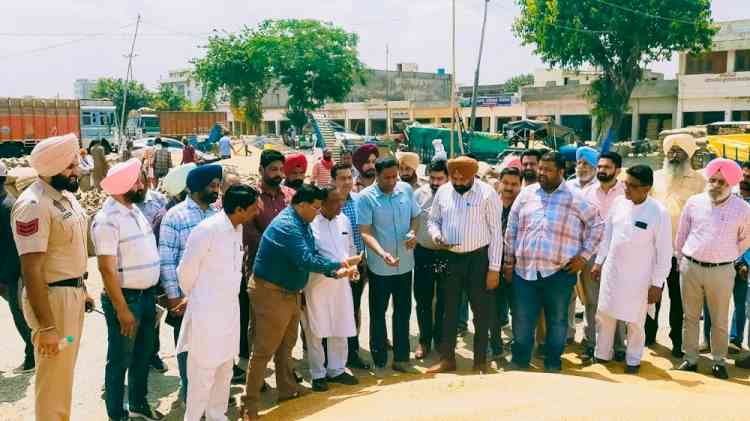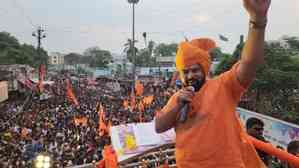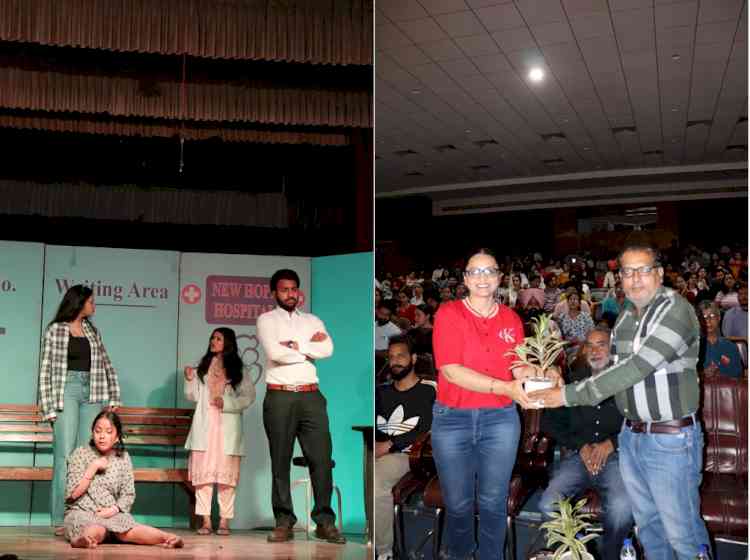Government blames UPA in judge row, Katju questions Lahoti (Intro Roundup)
New Delhi, July 22 (IANS) The NDAS government Tuesday pointed to role of the previous UPA regime in the controversial extension to a Madras High Court judge and pitched for "improving" the system of judges' appointment as the issue rocked parliament...

New Delhi, July 22 (IANS) The NDAS government Tuesday pointed to role of the previous UPA regime in the controversial extension to a Madras High Court judge and pitched for "improving" the system of judges' appointment as the issue rocked parliament for the second day and PCI chairman Markandey Katju, who had raised the allegations, posed questions to former CJI R.C. Lahoti on the matter.
The Lok Sabha was Tuesday disrupted by AIADMK members over the allegations by Justice Katju, a former chief justice of the Madras High Court and later an apex court judge, that an additional judge in the high court got an extension due to political pressure despite charges against him.
AIADMK members also raised the issue in the Rajya Sabha and disrupted its proceedings.
Law Minister Ravi Shankar Prasad admitted in the Lok Sabha that the incident had indeed taken place during the previous United Progressive Alliance government and the Prime Minister's Office had sought a clarification concerning the recommendation for the judge.
Meanwhile, DMK chief M. Karunanidhi came down heavily on Katju, charging him with making allegations due to "some hidden pressure" and sought to know why he had remained quiet so long.
Katju said in his blog Sunday that an additional judge of the high court was given an extension during the UPA regime despite an adverse Intelligence Bureau report concerning him.
Former prime minister Manmohan Singh, who was also mentioned by Katju in his blog, steered clear of the raging controversy and told CNN-IBN news channel that former law minister H.R. Bhardwaj had explained everything and he had nothing to add.
AIADMK members in the Lok Sabha charged their arch-rival DMK of interfering in the appointment of the high court judge when Katju was the chief justice in 2004 and sought to know who in the DMK had pressurised the then UPA government not to take action against the judge.
Speaking in the Lok Sabha amid ruckus by the AIADMK members, Prasad said: "In 2003, the collegium had certain reservations and had made some enquiries and decided that the case of this judge should not be taken up."
He said a clarification was sought by the PMO as to why the judge should not be recommended and the collegium reiterated its reservations. The law ministry then wrote a note to the collegium following which it said that his case can be considered for some extension.
He added that the decision taken could not be undone but the government has taken note of the concern of members.
"There is imperative need to improve on system of appointment of judges," he said and added that the government was "quite keen" to appoint a national judicial commission.
Bhardwaj had Monday admitted that UPA-I was under pressure from DMK to grant extension to the additional high court judge, Justice Ashok Kumar, but asserted that the government had followed the proper procedure in granting him a one-year extension.
Katju, in his blog, said the Supreme Court collegium comprising then chief justice Lahoti, Justice Y.K. Sabharwal and Justice Ruma Pal had first suggested that the judge should be discontinued as a high court judge after his two-year term was over following the adverse IB report.
"But a party in Tamil Nadu objected to it and conveyed threat of pulling down government to Manmohan Singh who 'panicked'," he said, adding a senior Congress minister then went to Justice Lahoti and told him there would be crisis if that additional judge's term was discontinued and managed to convince him to recommend another one-year term as additional judge.
Taking the issue further, Katju Tuesday posed six questions to chief justice Lahoti in his blog, asking him if he (Katju) wrote a letter calling for secret intelligence inquiry against the additional judge and later made a similar request when he met him (Lahoti) in person.
He also sought to know if it was correct if chief justice Lahoti telephoned him to convey that IB gave a report that "indeed the judge was indulging in corruption" and the collegium recommended to the central government not to extend his two-year term.
Katju asked if Lahoti, "without consulting his two other supreme court collegium colleagues", wrote a letter asking the government to give another one-year term as additional judge to the concerned judge?" and why was the judge given another term of one year despite the IB report.

 cityairnews
cityairnews 
















